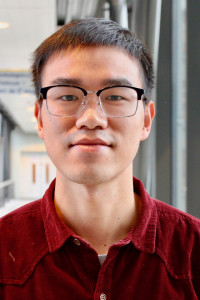PhD-student

Genetic information coded in genes shapes the fate of cells. However, gene coding regions only represent less than 2% of the human genome. The rest of human genome consists of repeats, transposons and other non-coding regions. A fundamental question in cancer biology is how to identify regulatory regions in cancer genomes, and define the functions of these regions. Currently I am focusing on Identifying essential and drug-response non-coding regulatory regions (ultra-conserved regions, enhancers, silencers, and other non-coding regulatory regions) using genome-wide dual-CRISPR screen. This will confirm the regulatory potential of these regions to affect important cancer phenotypes including response to chemotherapeutic agents. Functions of the identified regions will be further determined by associating to the genes and biological pathways that they regulate, and new strategies to target such regions will be tested for better treatment options.
I received my master degree of Genetics in the State Key Laboratory of Silkworm Genome Biology, Southwest University, studying the applications of CRISPR tools such as spCas9, BE3 and Cas13a in silkworm molecular biology. Then I joined the group of Baoxu Pang for my PhD study in 2018. I am working onprojects about the identification of non-coding regulatory elements (ultra-conserved regions, enhancers, silencers) involved in drug response.
Yufeng Li, Sanyuan Ma, Le Sun, Tong Zhang, Jiasong Chang, Wei Lu, Xiaoxu Chen, Yue Liu, Xiaogang Wang, Run Shi, Ping Zhao and Qingyou Xia.
G3: GENES, GENOMES, GENETICS., 2018 vol. 8 no. 5 1701-1709.



Looking for information on one of our topics, a new place to conduct your research or experienced research to join forces with? Feel free to contact us.!